That’s a good suggestion which I will follow. I will also birng enough tools to take things apart if that should be required.
Someone on another forum asked what cement I’m using for the acrylic. Here it is.
The Plexi cement is a special formulation for acrylic. It’s not cheap and evaporates very fast, but it is essential.
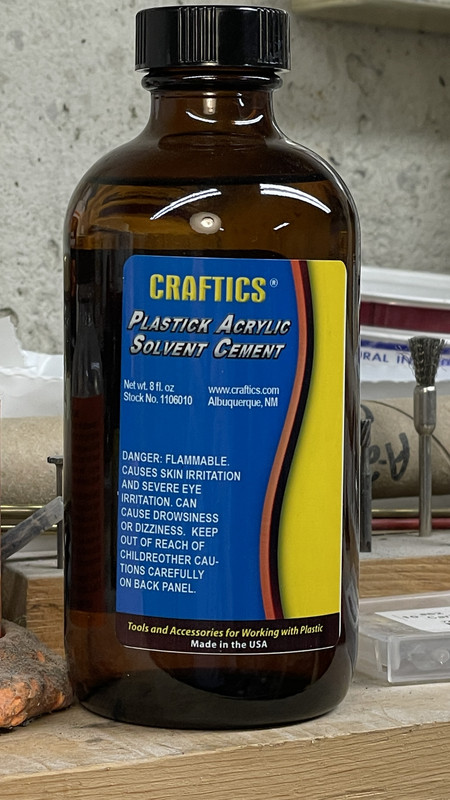
The best thing I did with the plexiglass was a) getting the measurements right, and b) having the plastics house cut the piece on a CNC mill leaving edges ready for gluing with no sanding. If you cut your own, either scribing and snapping (which I find very touch and go) or sawing using a special plastics blade, leaves and edge that needs sanding to both smooth and square the edge. While it can be done, it’s a lot of work and ripe for mistakes.
Onto today’s activities. I finished up the vent changes and added all the remaining parts, but most importantly mounted the model on the base.
I did the trim work on the vents and I’m glad I stopped when I did last night. I was rushing and getting frustrated and that leads to trouble. By doing it first thing today, it went quickly.

And the other side… Notice the errant floater net basket has been put back where it belongs. I had to fake the right side bracket since part of it got lost when it failed.
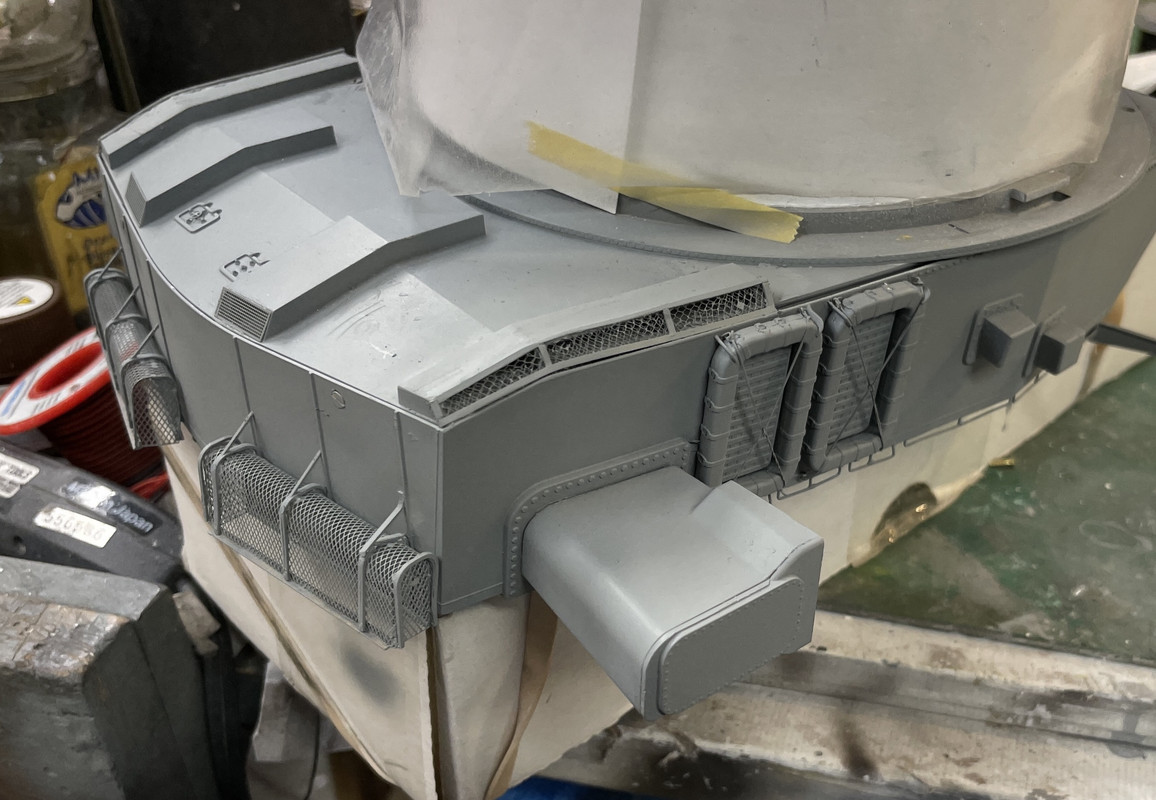
Now that I could turn it all right side up, it was time to mate the model and the base… and it WAS A BEAR! That pesky center column again caused trouble by being painted.
I put the bulkhead shells in place so I could gauge the depth of the insertion.
When I inserted the model in the socket, the center column went in too deeply… about a 1/4" or so. It wasn’t easy getting it in for the aforementioned paint problem. I had to do a lot of twisting and pushing, but not to hard, since there’s almost nowhere to grab on the model without potentially breaking something. The depth was a big problem! It forced the upper works (gun house, pan and e-decks) to drop below the top race of the roller bearing where the pan deck should be seated. I had to raise the column upwards, and in attempting to get this stubborn pole moving, I broke the mounting flange out of the bottom of the e-deck. To repair this I had to pull the top three high enough to turn them over, and had to pull the wiring harness up without having to refish the whole mass later. I was able to successfully do that and then had to go to plan B to raise the column.
Once I got the depth right I drilled pilot holes and screwed the bulkheads to the base so they would stay put.
I had the base stretched over two, equal-height worksurfaces so I could get to the undersides. I resorted to a pin punch and soft hammer to drive the column upwards in its socket WITHOUT damaging any wires. By raising it I was able to get the bottom edge of the pan deck to sit over the upper race. It needed some coaxing and a clamp to hold it for CA gluing. I glued around the backside as well.
Once this was glued I was finally able to install the turret clamps now that I had the exact location of their seating under the ring gear. They are doing for the model the exact same function as the real ones do. They preventing the upper works from rising off the seat and provides additional security to holding the model in place. That ragged paint is the result of scraping the paint to the base UV Resin for a better CA joint. It looks pretty real actually.
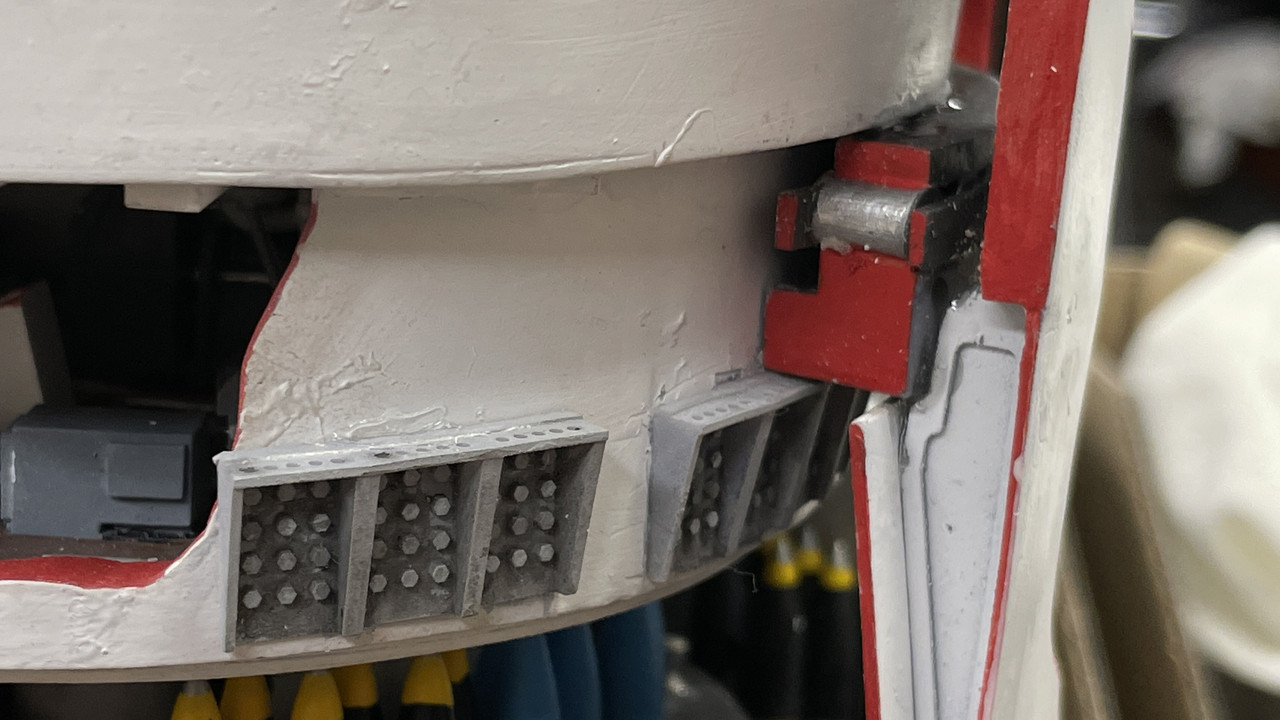
With the clamps in place I was finally able to install the last two parts: the buffers and positive stops. The buffer sits under the now-hidden ring gear, and the stops are on the barbette inner wall about 180 degrees around.

I don’t like tht they’re a bit crooked. i may have to fix that…
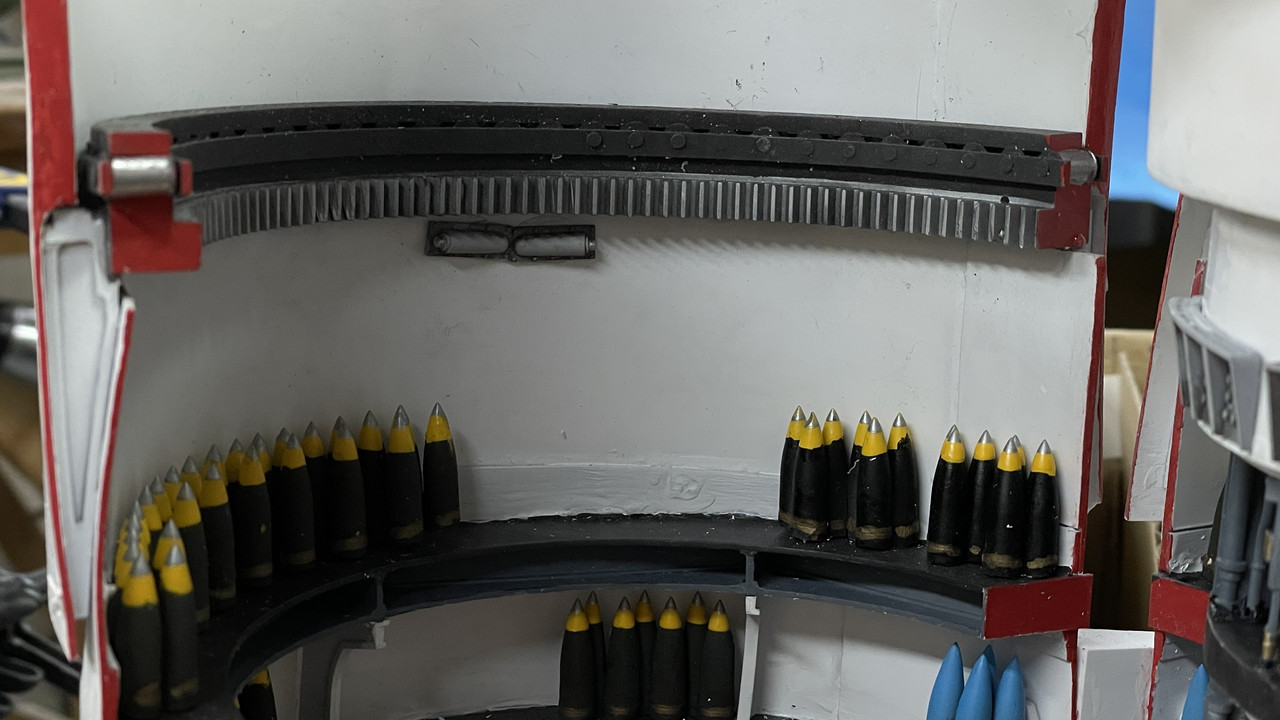
The last thing I did was add the guns. I glued the bloomers in first with Testor’s tube cement. The guns are not glued. If you have to take off the gun house top you would have to remove the guns. But the fit was too tight. My machining tolerance was very close and the paint buildup in the bore was just enough to make them a press fit. I didn’t want to press too hard for fear of breaking something unfixable inside, so I stopped, wrapped some med grit sandpaper around that pin punch and lightly sanded the bores. It worked and the guns are a firm sliding fit in. They seated perfectly and none of the elevating screws were damaged. Whoopee!
So… dear readers, the model is complete except for the lights and that takes place tomorrow. I’m still working on the lighting and that will be done tomorrow. I don’t think I’ll break anything else, but you never know.
My #1 genius grandson, revised my data sheet, making it more user friendly for museum visitors; more of a narrative rather than a technical list of items. It now describes what takes place on each deck rather than a list of item found there. He also suggested, which I have accepted, to add a QR code that directs visitors to one of my build thread on the various forums on which I post all of this. I’m going to make a separate tag with info. This way, so one so inclined can learn about the entire agonizing process.
Now for some fun pictures.
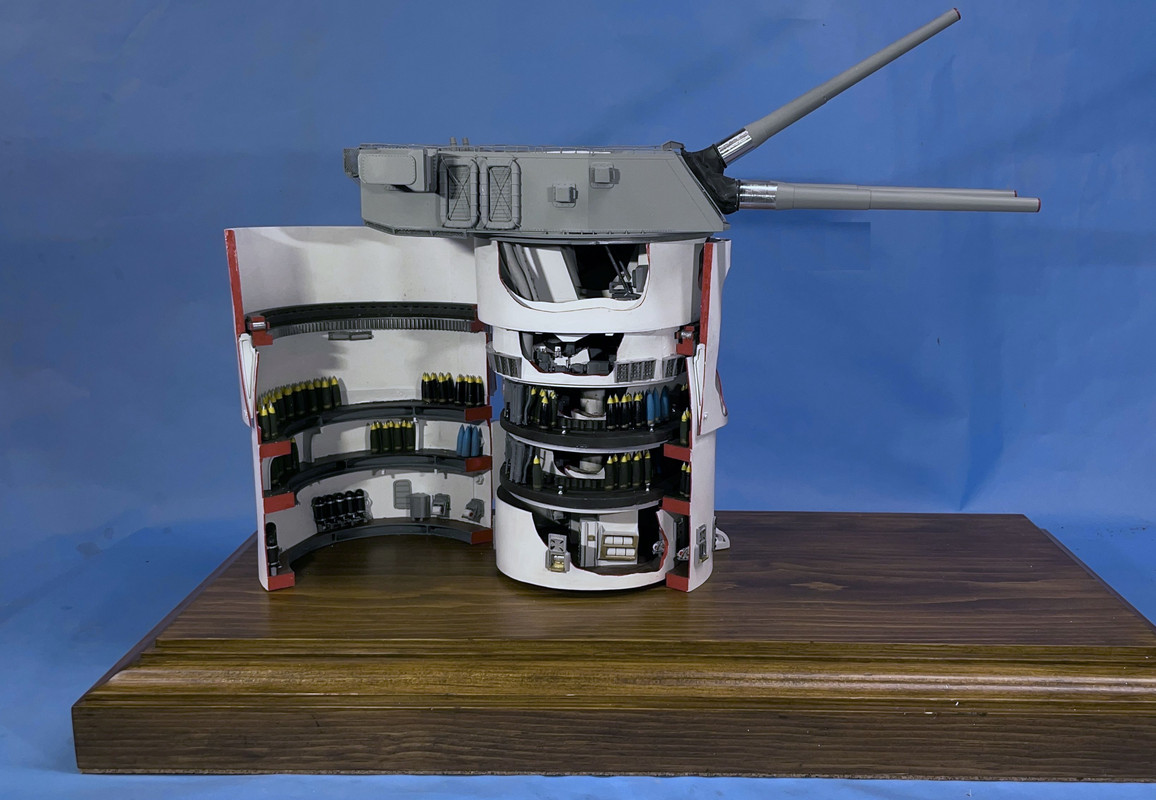
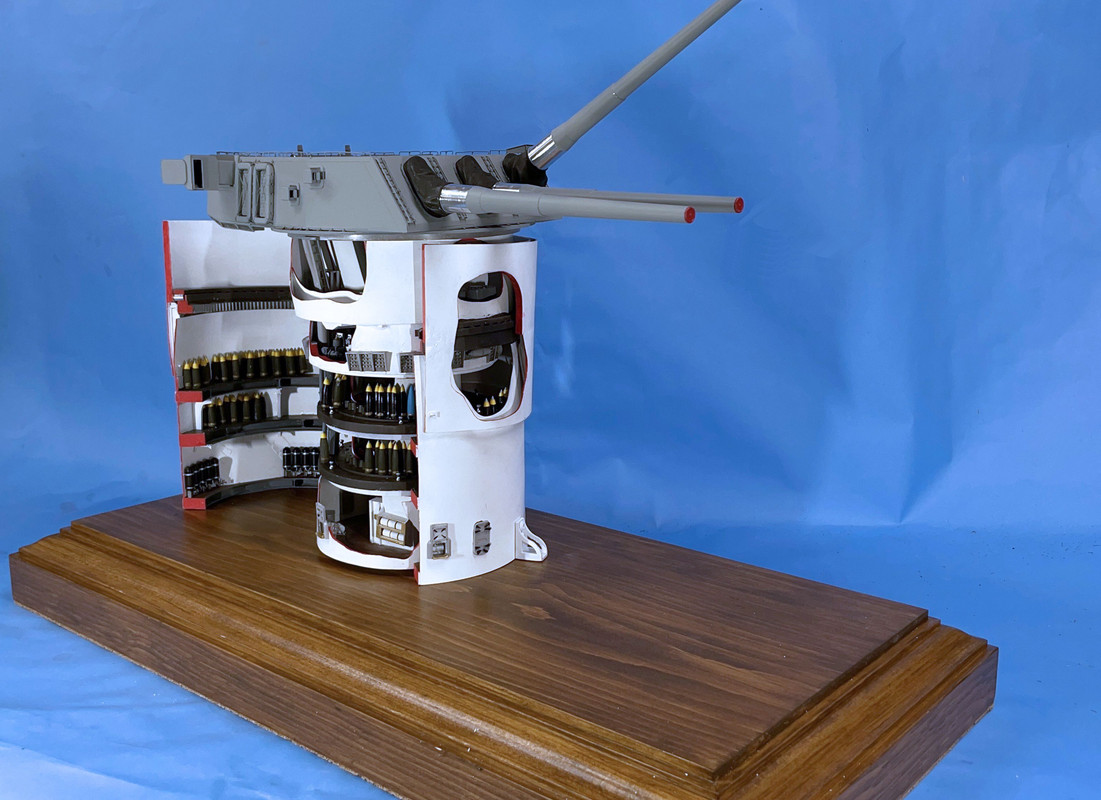
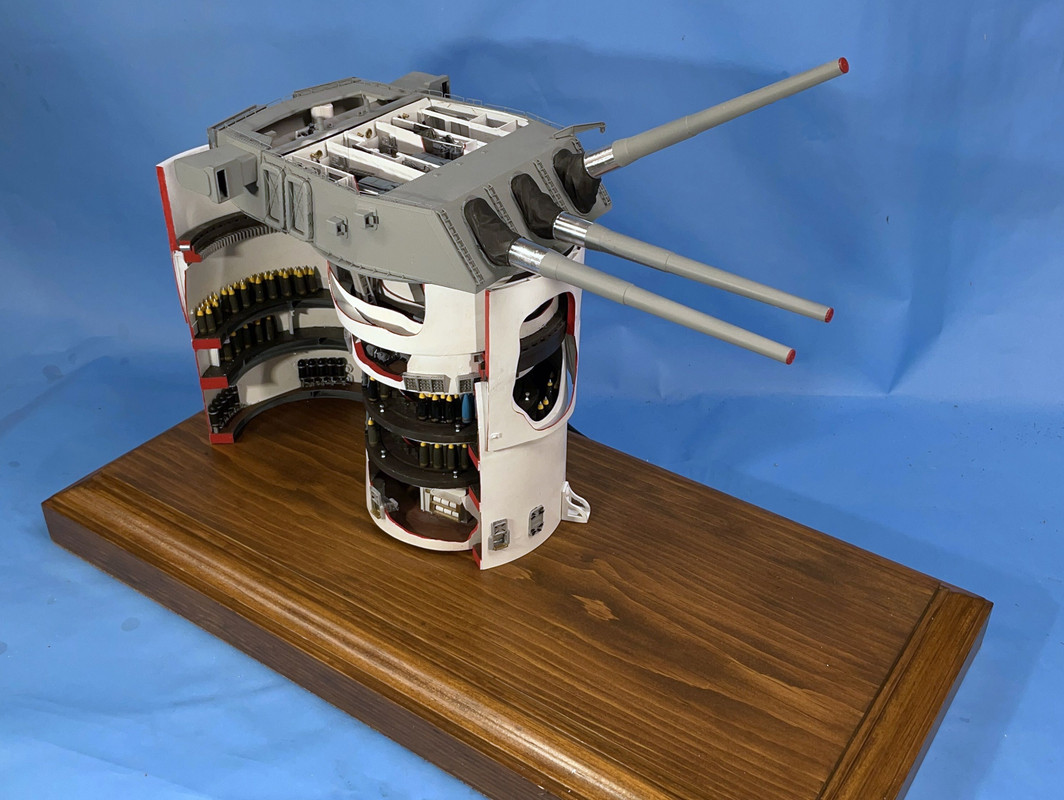
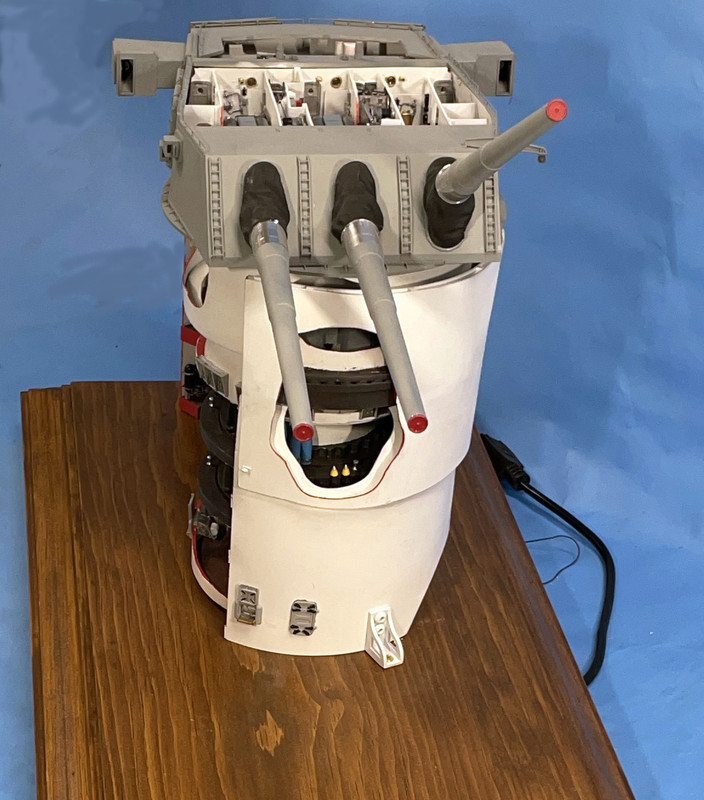
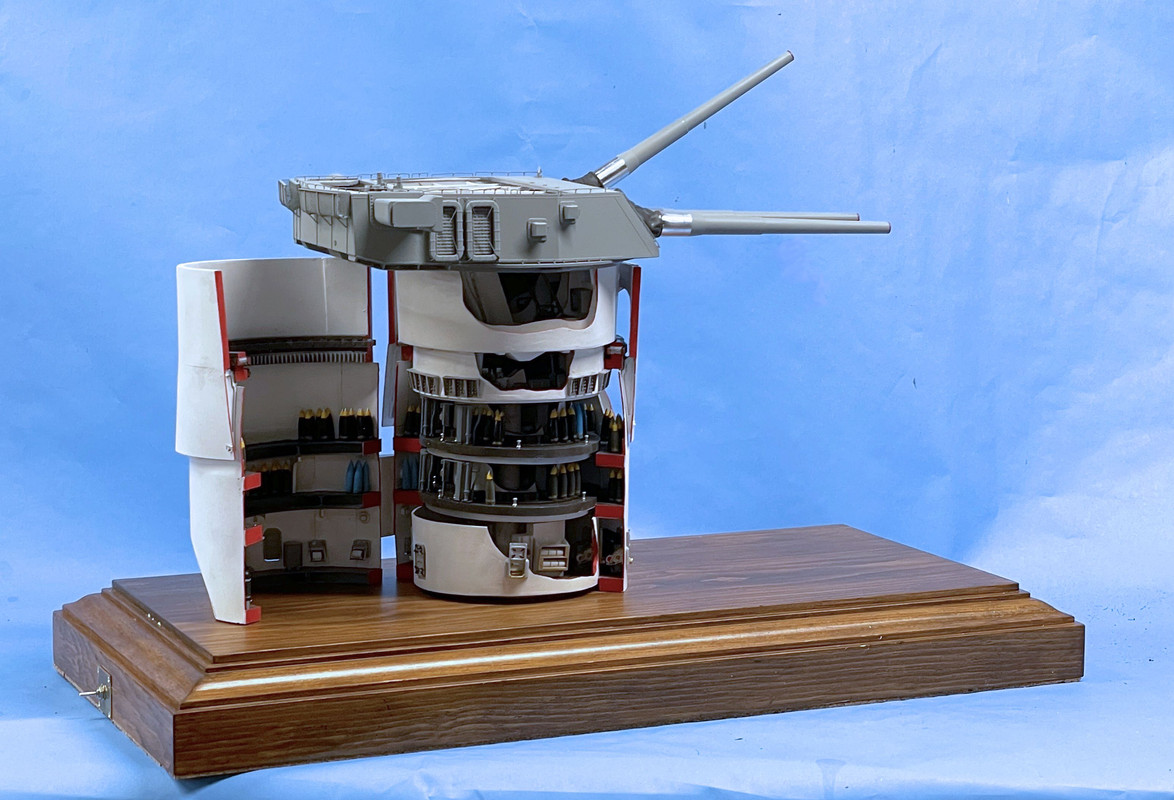
And with the case lid in place. One of my readers suggested devising a way to secure the enclosure and I’m noodling some ways to do this.
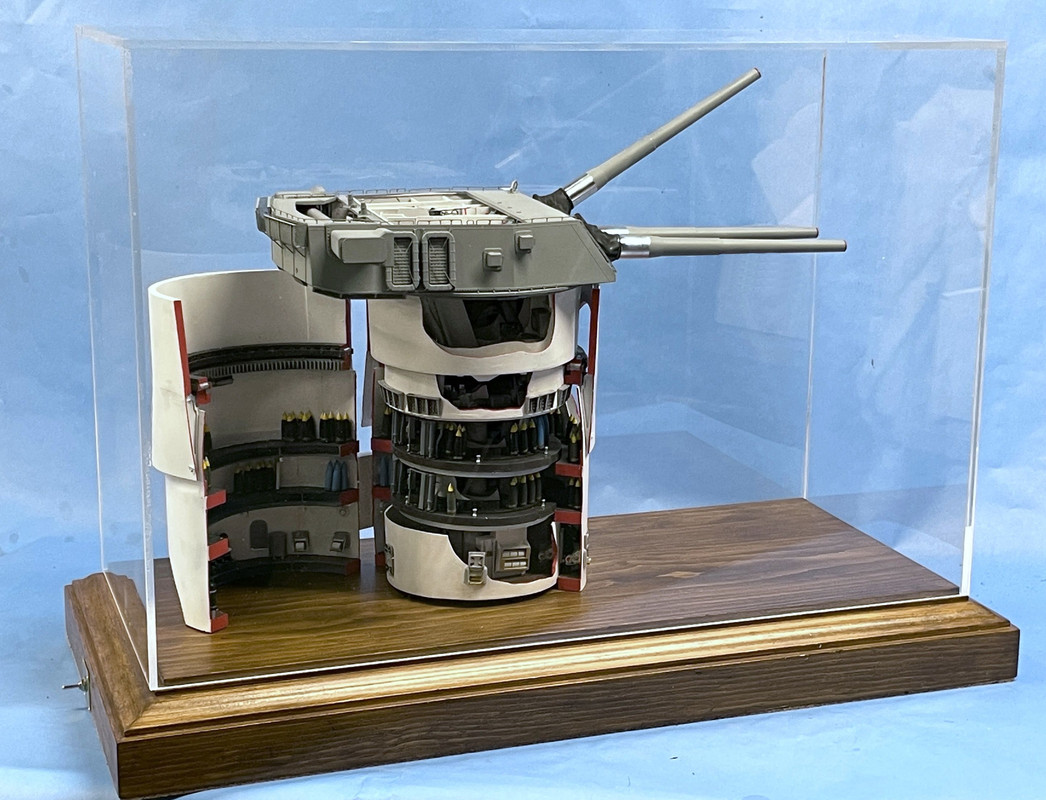
Here’s my design drawing of the same.
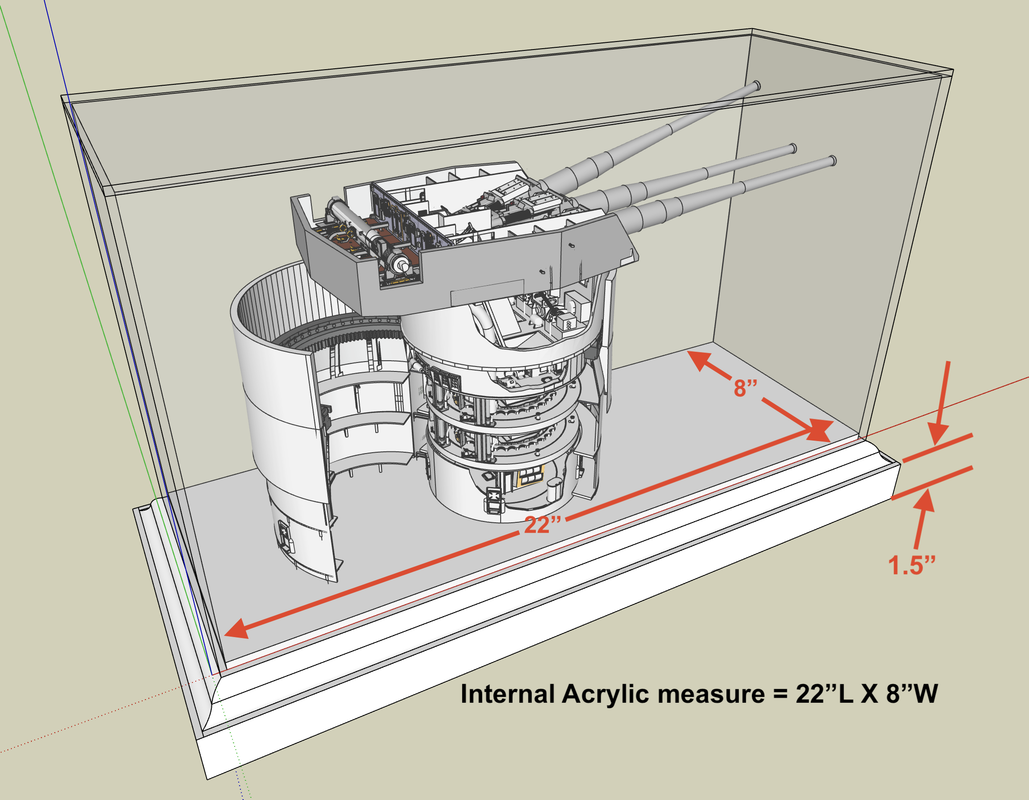
Tommorrow, if and when I get the lighting working, I will take some more images… and then I’ll take some more when the graphics are mounted. I will wait until all this is done for my formal end-of-project dissertation with all the lessons learned. I really need to understand all the stuff that I did wrong, especially in the desgin area. I will need all this if I’m tasked with making another one of these for anyone, including the other battleship museum ships. The turret desgin on the South Dakota class ships is almost identical other than the longer barrels on the Iowas.**